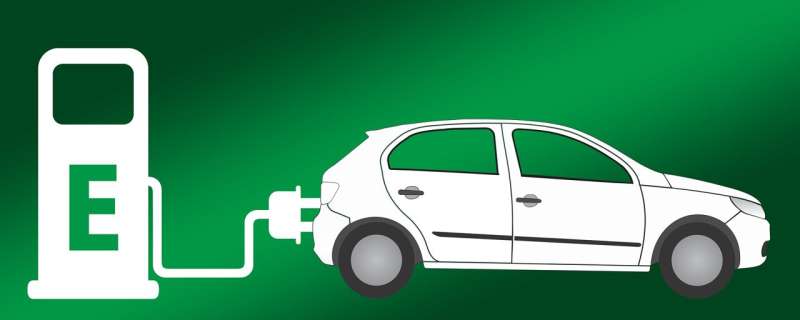This article has been reviewed according to Science X's editorial process and policies. Editors have highlighted the following attributes while ensuring the content's credibility:
fact-checked
trusted source
written by researcher(s)
proofread
Why Indonesia wants Australia's help to supply the world with electric vehicles and batteries

Australia and Indonesia are forging closer economic ties built on what each country can offer the other in the transition to clean energy. Indonesia is emerging as a maker of electric vehicles and the batteries that power them. Australia has the lithium reserves Indonesia needs to do this.
Visiting Indonesian President Joko "Jokowi" Widodo and Prime Minister Anthony Albanese have committed to working more closely together on the energy transition.
The leaders' joint communique on Tuesday specifically noted Indonesia's efforts to develop its electric vehicle production. Widodo is seeking to enlist Australia's help to achieve Indonesia's goal of becoming a global electric vehicle and battery manufacturing hub.
What are Indonesia's goals?
In line with its commitment to the Paris Agreement, Indonesia has set an ambitious target for its vehicle industry. By 2025 it wants at least 20% of the cars it produces to be electric vehicles. That equates to about 400,000 cars.
Indonesian government programs such as the Low-Cost Green Car incentives and Low-Carbon-Emission Vehicle regulations are driving this transition.
Most vehicles made in Indonesia involve joint ventures with foreign manufacturers. To produce electric vehicles, Indonesia established joint ventures with Korea's Hyundai and China's SGMW.
The government's goal is for the Indonesia Battery Corporation (IBC) to become a hub of electric vehicle battery manufacturing. This would take advantage of Indonesia's rich nickel deposits. However, the country lacks other ingredients to make these batteries, most notably lithium.
Why does Indonesia want Australian lithium?
Indonesia aims to be in the world's top five electric vehicle battery producers by 2040. To achieve this, it needs to secure access to other minerals, including lithium. Australian mines supply around half of the world's lithium.
Other important suppliers include Chile (24%) and China (16%). But being close to Indonesia makes Australia the most attractive supplier.
So far most of Australia's lithium exports have gone to China. Given changing geopolitics (for example, Chile plans to nationalize its lithium industry) and global supply-chain disruptions (the Russia-Ukraine war, the China-US tension), Australia would benefit from exporting lithium to Indonesia as well.
Australia lacks capacity to refine all its lithium
Australia is the world's largest producer of spodumene. This mineral is rich in lithium.
However, Australia has limited capacity to refine all that spodumene into the lithium hydroxide used to make lithium-based batteries. It makes sense, then, to exploit this resource as part of the global supply chain, by linking with battery and car industries in Indonesia and other countries.
Australia is a small player in global manufacturing trade. However, its share of the global production network has been increasing.
Australia has a distinct competitive edge in specialized components. These include parts for aircraft and associated equipment, vehicles, earth-moving and mineral-processing machines, and finished products such as medical and surgical equipment.
However, Australia's geographical location puts it at a disadvantage as an exporter. It costs more to export to distant major markets.
Specializing in high value-to-weight components helps to overcome this "tyranny of distance". Exporting raw materials (including lithium) and importing the derivatives back to produce high-value goods is better for Australia.
What would an agreement on lithium achieve?
In February 2023 the Western Australian government and Indonesian Chamber of Commerce and Industry (KADIN) signed a memorandum of understanding (MOU) to explore partnership opportunities. The focus is on supplying critical minerals for the battery industry. Widodo and WA Premier Roger Cook signed a follow-up plan of action this week.
Australia and Indonesia are expected to sign an MOU that will accelerate co-operation on the global battery and electric vehicle sector. Tuesday's joint communique included a commitment to pursue this goal.
As both countries begin to decarbonize, they should exploit the complementary aspects of their economies. Both are embarking on the journey of energy transition to deal with the challenges of climate change.
It is important, however, not to limit this to a two-country endeavor. For a start, an EV battery needs much more than just nickel and lithium. Many of its components need to be sourced from other countries. And an EV battery industry should be integrated with an automotive industry supplying global markets.
The joint ventures may also extend to mineral processing. In Indonesia, electricity from coal powers most smelters. Collaboration on the energy transition should include a shift to clean wind, hydro and solar power.
This article is republished from The Conversation under a Creative Commons license. Read the original article.![]()





















